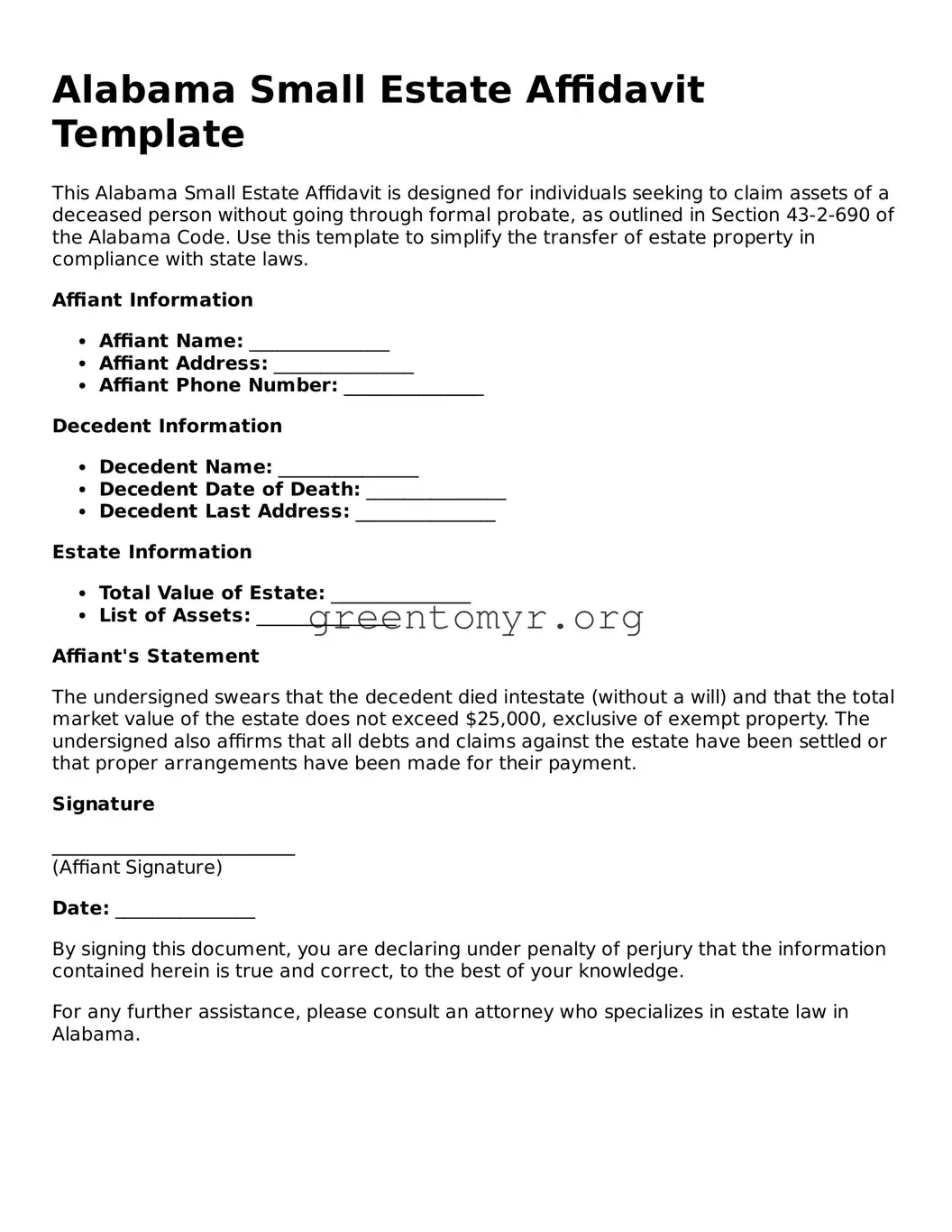Filling out legal forms can be tricky, especially when it comes to matters like settling an estate. The Alabama Small Estate Affidavit is designed to help simplify the process for smaller estates, but mistakes can easily happen. Here are ten common errors people make while completing this important form.
One frequent mistake is to misidentify the decedent. It’s essential to provide the correct name and any aliases. Ensure that the name matches what appears on legal documents, as any discrepancies can lead to delays or complications in the estate settlement.
Another error involves forgetting to include all heirs. The form requires you to list all individuals entitled to inherit under Alabama law. Omitting an heir, even unintentionally, can result in disputes later on, which can complicate the process.
Additionally, people often overlook the required supporting documents. Just filling out the affidavit isn’t enough; it needs to be accompanied by necessary documentation such as a death certificate and any relevant estate information. Missing these documents can lead to the rejection of your affidavit.
Some filers struggle with providing accurate property descriptions. It’s crucial to describe the decedent's property clearly and specifically. Relying on vague terms can lead to misunderstandings about what is being transferred, which may cause issues down the line.
Another mistake stems from not notarizing the affidavit. Alabama law requires that the Small Estate Affidavit be signed in front of a notary public. Forgetting this step can make the affidavit invalid, forcing the process to restart.
People also often fail to mention debts and expenses associated with the estate. While not always necessary, if debts exist, they should be disclosed to prevent any potential claims against the estate later. Transparency is vital to avoid surprises.
Time-sensitive issues also come into play, as some wait too long to submit their affidavit. The estate law specifies a deadline for filing, and missing this limit can complicate the distribution of assets significantly.
Moreover, unclear language used in the affidavit can lead to misinterpretations. It’s always best to be straightforward and precise, avoiding legal jargon or ambiguous phrases. The clearer your language, the smoother the review process will be.
Another common blunder is relying on an outdated version of the form. Always double-check the form you are using to ensure it’s the current version from the Alabama state website. Using outdated forms can lead to substantial setbacks.
Finally, people often forget to double-check for accuracy before submission. Simple typos or errors in names, dates, or amounts can create unnecessary complications. Reviewing your affidavit with a fresh set of eyes or having someone else look it over can be immensely beneficial.
Understanding these common pitfalls can make the process of completing the Alabama Small Estate Affidavit smoother and less stressful. Take the time to fill out the form carefully to help ensure that everything proceeds as intended for the estate.
